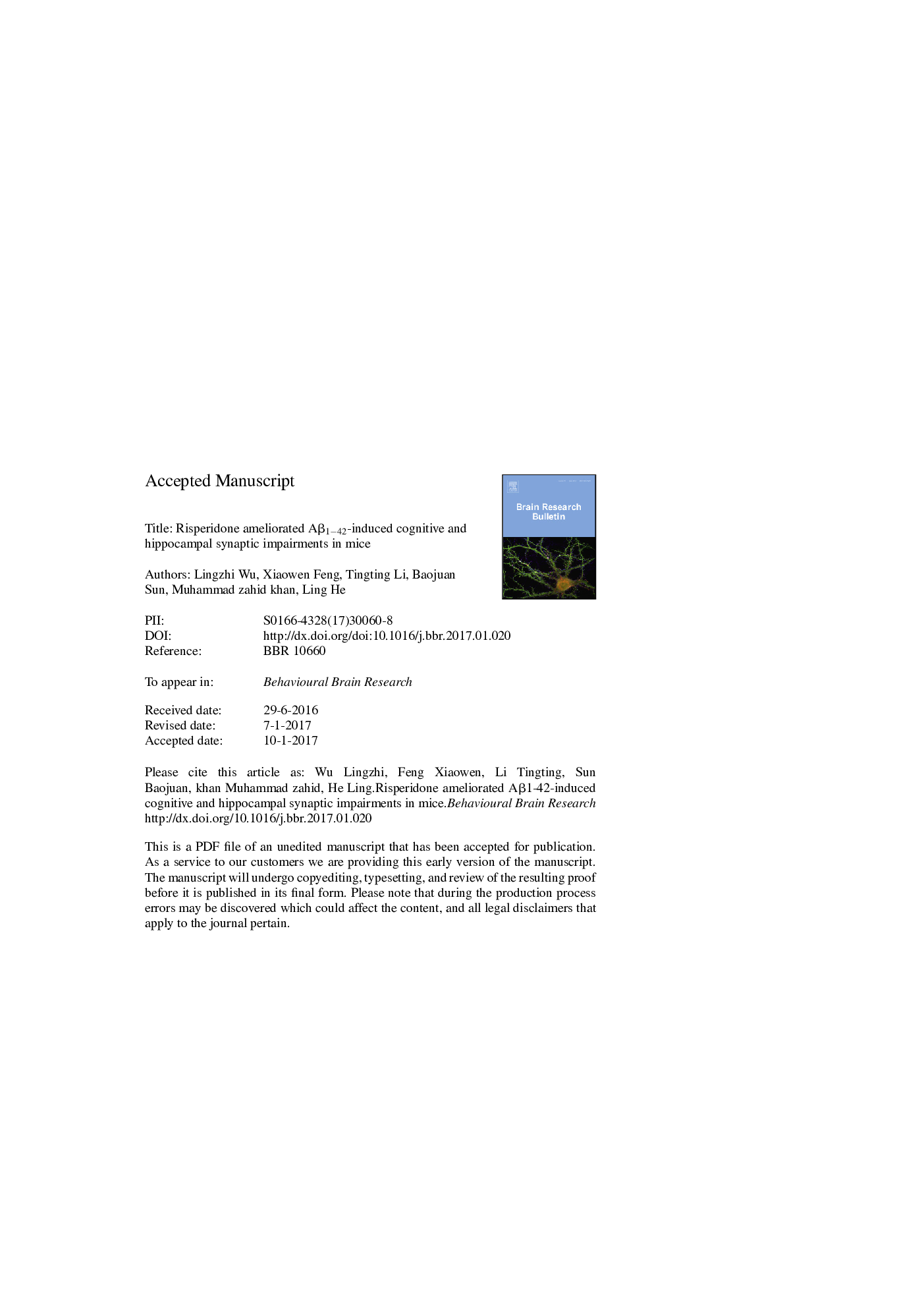| Article ID | Journal | Published Year | Pages | File Type |
|---|---|---|---|---|
| 5735524 | Behavioural Brain Research | 2017 | 28 Pages |
Abstract
Alzheimer's disease (AD) is a complex neurodegenerative disorder with cognitive impairment and major neuropathologic hallmark of amyloid-beta (Aβ) peptides. Risperidone, an atypical antipsychotic, can improve concentration and cognitive deficit in schizophrenia patients. In this study, behavior tests including Morris Water Maze test, Step-through passive avoidance test, Open Field test, Step-Down test, Hole-Board test and Novel object recognition test were preformed to examine the effect of Risperidone on Aβ1-42-induced cognitive dysfunction in both long-term and short-term memory. Furthermore, ELISA assay was conducted to measure the levels of Aβ1-42, BACE1 and p-Tau in the hippocampus and cortex. Moreover, primary cortical neuron was cultured in vitro, and the cell viability, mitochondrial membrane potential, and the level of p-Akt, GSK3β and Caspase-3 protein were measured. For behavior tests, the results showed that Risperidone significantly reversed the Aβ1-42-induced dysfunction in learning, memory, locomotor activity and exploratory behavior. As detected by ELISA assay, risperidone decreased the levels of Aβ1-42, BACE1 and p-Tau in the hippocampus and cortex of AD model mice. Biochemical assay showed that Risperidone reversed the Aβ1-42-induced decrease of cell viability and mitochondrial membrane potential in cultured cortical neurons. The expression of p-Akt was increased, whereas the expression of GSK3β and Caspase-3 were decreased. These results suggested that Risperidone may be used as a promising candidate for AD treatment, for its effects of inhibiting Aβ generation and improving cognitive impairment in mice.
Related Topics
Life Sciences
Neuroscience
Behavioral Neuroscience
Authors
Lingzhi Wu, Xiaowen Feng, Tingting Li, Baojuan Sun, Muhammad Zahid Khan, Ling He,
